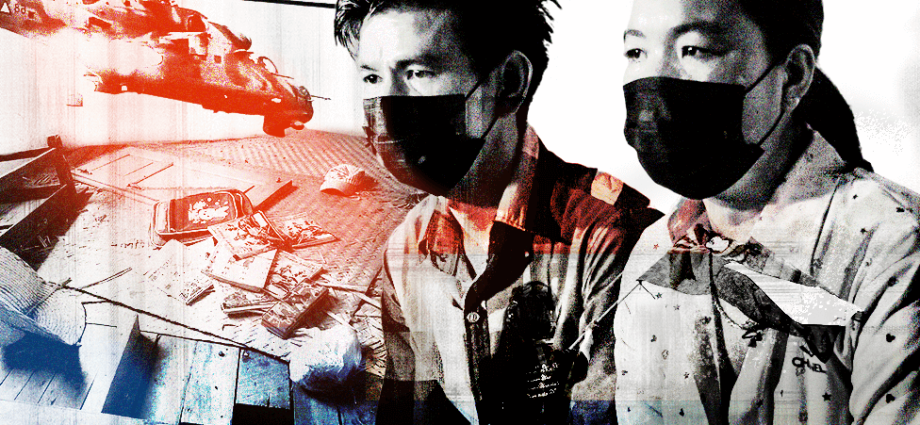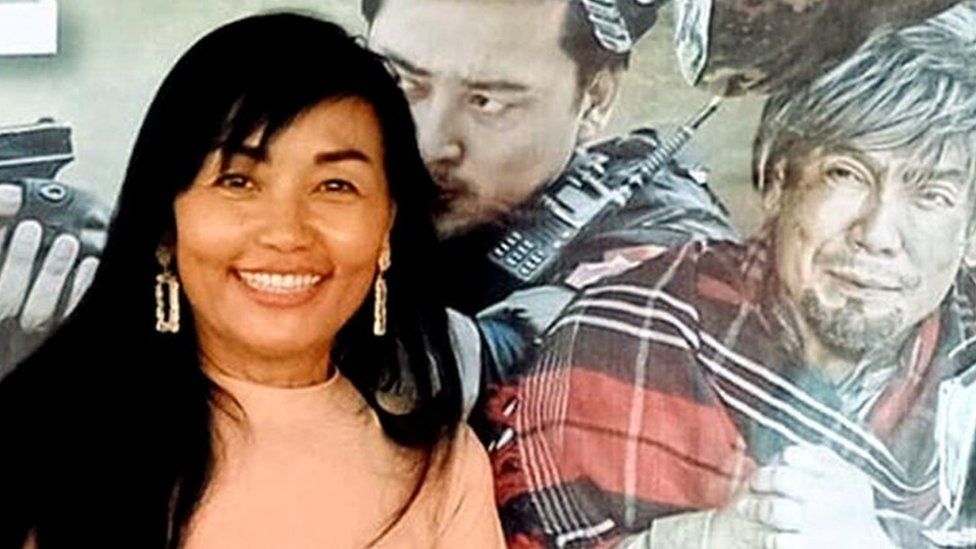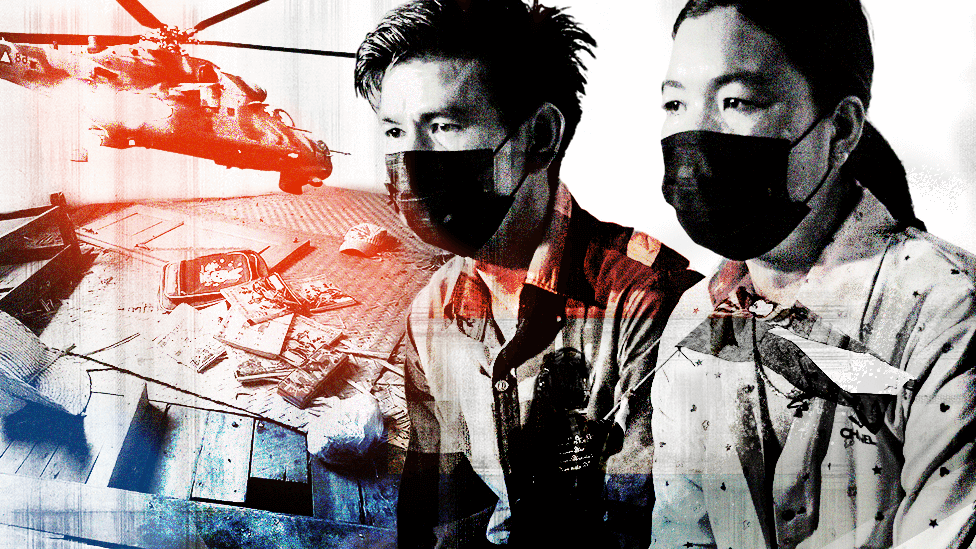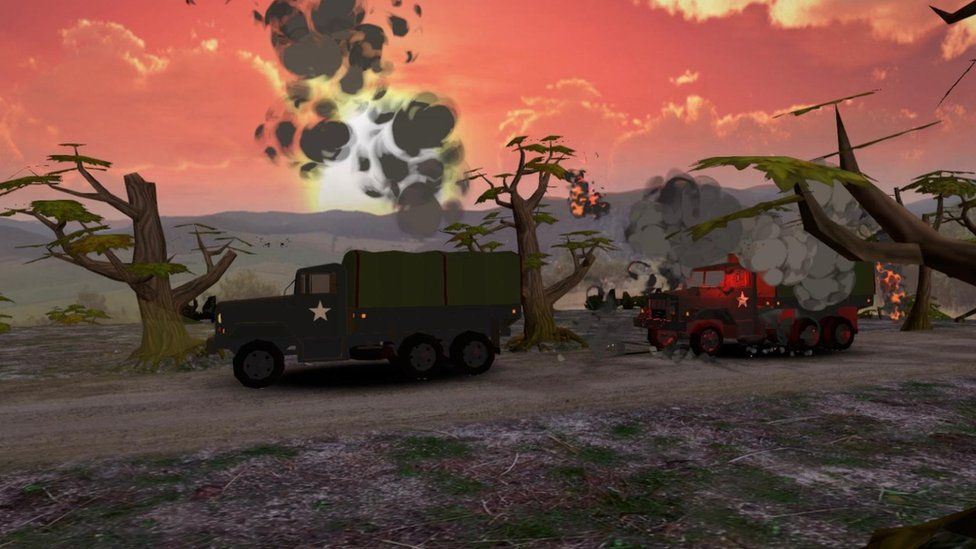
When soldiers in Myanmar arrested Ko Toot’s friend and his pregnant wife after the February 2021 coup, he became so angry he decided to join efforts to remove the military from power – by using his IT skills.
The app-based mobile game that he developed is based on “real events” in the country and has proved a hit – incensing the ruling junta and raising funds for the anti-military resistance.
“They had never done a single criminal thing in their lives,” said Ko Toot of the couple, who were detained for supporting the pro-democracy movement.
He didn’t know what had happened to them. The BBC only recently established the woman was released within a day, but the man was held for about a year and a half.
After their arrest, Ko Toot then heard the military had detained the wife and infant daughter of a pro-democracy activist it had been unable to locate.
“Imagine you are a young child and you grow up inside a dirty, stressful and sadistic prison, and you have no idea what’s going on. It made my blood boil.”
So Ko Toot, who works as an IT professional, decided he had to be part of the movement to oust the “cruel and dangerous” military – and began working on his game.
Ko Toot spoke to the BBC by text message on an encrypted app, and would not reveal his location. We are using a pseudonym for his safety.
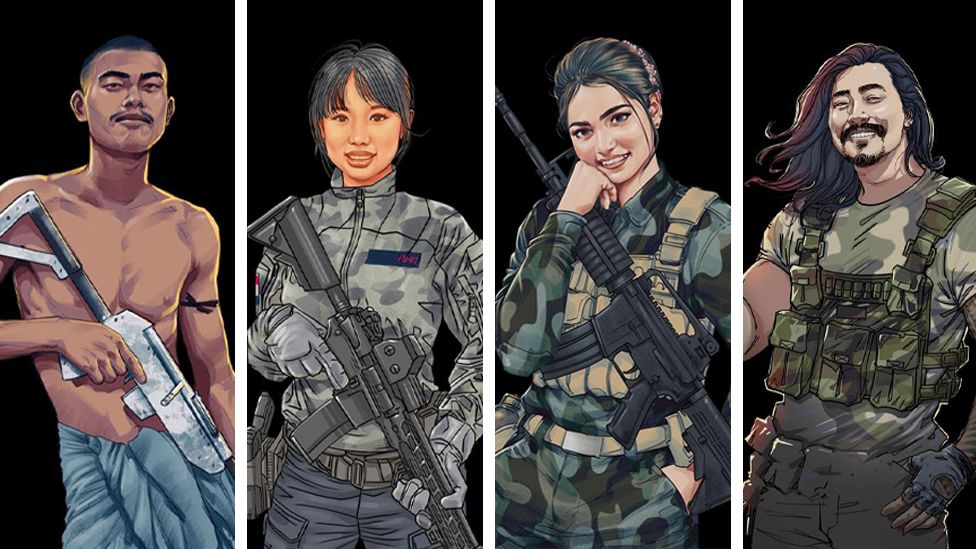
Myanmar descended into almost full-scale civil war after the coup.
More than 4,000 people have been killed by the military since then, according to the Assistance Association for Political Prisoners monitoring group. The UN says the death toll is “likely to be far higher”.
Gauging troop casualties is hard – the military has acknowledged losses but not given a figure. The exiled National Unity Government says the resistance has killed 20,000 soldiers, but the BBC has not verified this figure.
Ko Toot’s aim was to raise funds for arms and humanitarian aid for the anti-military forces known as People’s Defence Forces (PDF), as well as increase awareness about the situation in the country.
“I felt that we had very limited international help and awareness,” he said, comparing the coverage of the crisis in Myanmar unfavourably with that of Russia’s invasion of Ukraine.
‘Real people in a real war’
His game originally launched as The PDF Game in early 2022.
It is free to download, but players watch in-game ads to raise money, and Ko Toot estimates proceeds raised so far total at least $508,000 (£403,000).
He estimates he now makes between $70,000 and $80,000 per month, and claims the figure is “increasing each month”.
Players take the role of PDF soldiers fighting against military troops, and work through missions similar to real ones in Myanmar.
Ko Toot said he created characters based on real people fighting the military, including doctors, Muslims and members of the LGBT community.
He said it was important to document them because “they are fighting in a real war”.
The game is available on both the Google and Apple app stores, although it had faced issues due to the companies’ policies around sensitive events, Ko Toot said.
On Google Play it has been renamed “War of Heroes – The PDF Game”. Google said it does not allow apps that “capitalise on or are insensitive toward a sensitive event”, but that content is generally allowed if it “intends to alert users to or raise awareness” about the event.
The name also had to be changed on Apple’s App Store, to “War of Heroes”, before it was removed from the platform – this was a “huge blow”, Ko Toot said.
Apple said the app violated its guidelines – notably that enemies in a game “cannot solely target” a “real government, corporation or any other real entity”, as well as a policy around violent conflicts.
It has since been reinstated after Ko Toot made amendments, including to the original artwork, as well as the removal of some military missions.
“This is definitely good news, and we expect to make more income now,” he said.
The game has also attracted the ire of the ruling junta in Myanmar, who in April issued a notice in state-run media warning the public they could face legal action for “playing the PDF game”.
It said “terrorist organisations”, such as the exiled National Unity Government, had created the game to raise funds for PDFs, “sow mistrust” against the military and thus “grow their anti-army revolutionary spirits”.
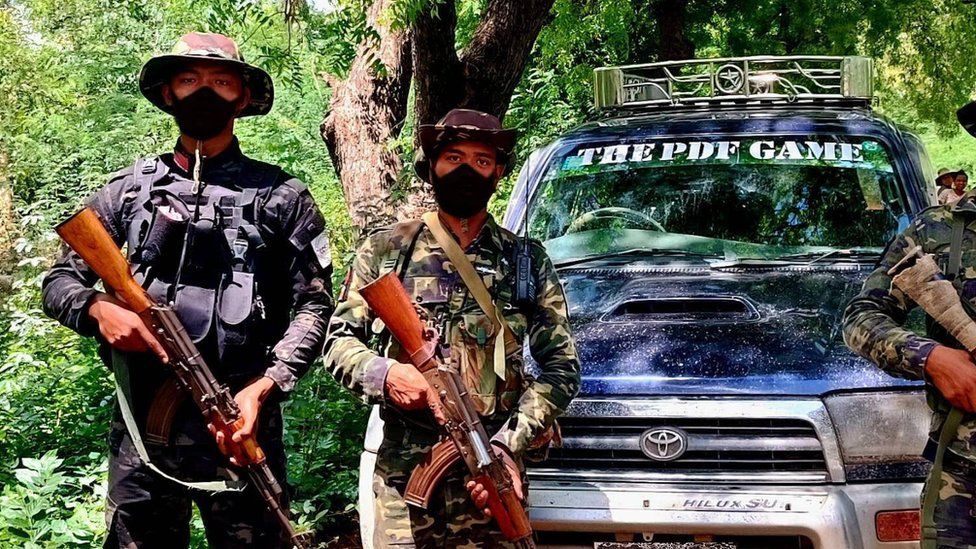
Ko Toot is unfazed by the military’s threats. “I don’t care what they say,” he said.
“They have already tried to stop this several times, but we will just keep going – there’s no way of stopping the digital strike,” he said of the online efforts to defeat the military.
The game has been downloaded “almost” one million times, Ko Toot said. (Google Play says it has been downloaded more than 500,000 times, while Apple does not provide information on the number of downloads.)
He thinks the amount raised could be much higher than his estimate because, working with a small team, it has taken him a long time to receive some of the money.
These funds are sent to local PDFs, and are used for food and arms for resistance groups, as well as humanitarian support, including funds for children displaced by the conflict and those injured fighting the military, he said.
“We just send funds to the defence groups, but don’t say how to use them.”
Formed in response to the 2021 coup, the PDFs have linked up with armed groups formed along ethnic lines that have been operating in border areas for decades. They are proving to be a much stronger force than many expected and the Myanmar military has lost control of large parts of the country.
With limited finances and arms networks, grassroots funding efforts have been crucial in procuring arms and other supplies for the resistance, in a conflict that is heightening in intensity.
Ko Toot said he had considered quitting several times, but “the situation in Myanmar is getting worse every day” and he wants to continue supporting the anti-military movement.
“The game has potential,” he said, adding that he hopes to eventually raise $1m per month.
“I hope this money will help the [Myanmar] people, who need it desperately.”

